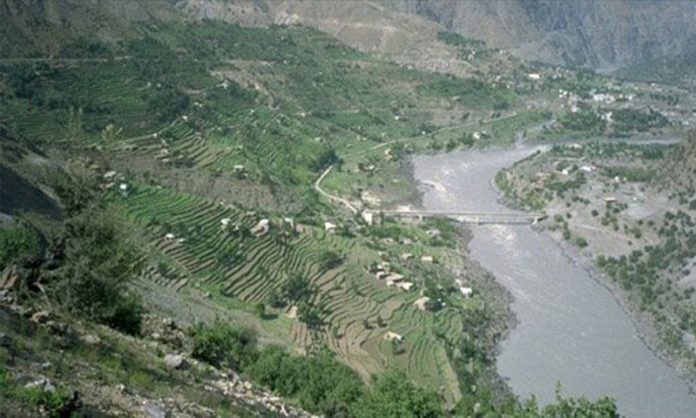Chief Justice of Pakistan (CJP) Justice Mian Saqib Nisar on Wednesday, while hearing the Kalabagh dam case, asked if Pakistan’s survival was possible without water.
A three-member bench of the apex court, chaired by Justice Nisar was hearing the petition filed by Barrister Zafarullah Khan, who had requested a referendum for the construction of Kalabagh Dam.
Judicial advisor former Chairman WAPDA Engineer Shamsul Mulk and lawyer Aitzaz Ahsan, also serving as amicus curiae on the case, were present in court.
As the hearing went under way, the petitioner remarked that all of the four provinces had agreed on the construction of Kalabagh dam, to which the chief justice responded that the issue was not so simple.
Mulk observed that some people had said that getting dams constructed was not the job of the chief justice. However, he reiterated that no one except the top judge.
The former WAPDA chief informed the apex court that 46,000 dams have been constructed worldwide. “Are other countries fools to be constructing dams?” he said.
China has constructed 22,000 dams, with each of the reservoirs producing 30,000MWs of electricity, Mulk told the court. He further said that Pakistan’s next-door neighbour, India, had constructed 4,500 dams.
“I have met with every opponent of the Kalabagh dam and all of them have accepted my stance on the matter,” Mulk said. He observed that opponents of the dam say they don’t trust the Punjab province.
The engineer informed the court that water stored in the Tarbela dam is distributed to the provinces through a devised formula, with Khyber Pakhtunkhwa (KP) receiving four per cent of the water. Sindh, Balochistan, and Punjab receive 70 per cent, six per cent, and 20 per cent of Tarebela’s water respectively.
Mulk further stated that he had given a briefing on the dam to the KP government and the Awami National Party (ANP), whose influence lies in the Pashtun-dominated areas in and around the province. “A senior member of ANP told me that he would convince party president Asfandyar Wali Khan for the construction of the dam.”
The chief justice asked if Pakistan’s survival without water was possible. “What will be Pakistan’s water situation after five years if dams are not constructed,” he said.
To Justice Nisar’s inquiry, Mulk responded that 86 per cent of the water in rivers comes in the form of floods.
Chief Justice Nisar then asked about the measures that should be taken to solve the country’s water issue. He also observed that fear should not be evoked in the citizens of Pakistan, and Quetta in particular.
The top judge observed that construction of dams was imperative for the country’s survival. Pointing towards national unity, he said all of the four brothers [provinces] should come together and make sacrifices for the construction of dams. “Farmers will be indebted if agricultural land will be infertile,” he said.
Moreover, Chief Justice Nisar remarked that the nation needs Mulks services.
“We must work on an urgent and emergency basis. Bring together people so they can give their suggestions,” the chief justice said. “Everyone should unite to resolve the issue.”
Lawyer Ahsan remarked that talks should be held with the opponents of the dam. To this, the chief justice responded that dams which are not controversial should be prioritised.
Questioning the political government’s efforts to construct dams in the past ten years, Justice Nisar remarked that nothing had been done in that regard.
“Come what may, dams must be constructed. I want to know where can the dams be constructed? I want to know the issue’s solution,” the chief justice said, adding that the apex court would not let the matter go till it was resolved.
The top judge observed that a team of experts needs to be constituted. Engineer Imtiaz responded that multiple teams, not one, need to be formed for the issue.
Imtiaz further said that dams were not constructed due to corruption, and instead thermal power stations were installed. “The Nawaz Sharif-led government set up thermal plants on three hundred per cent higher prices,” he alleged.
With Input from GeoNews





